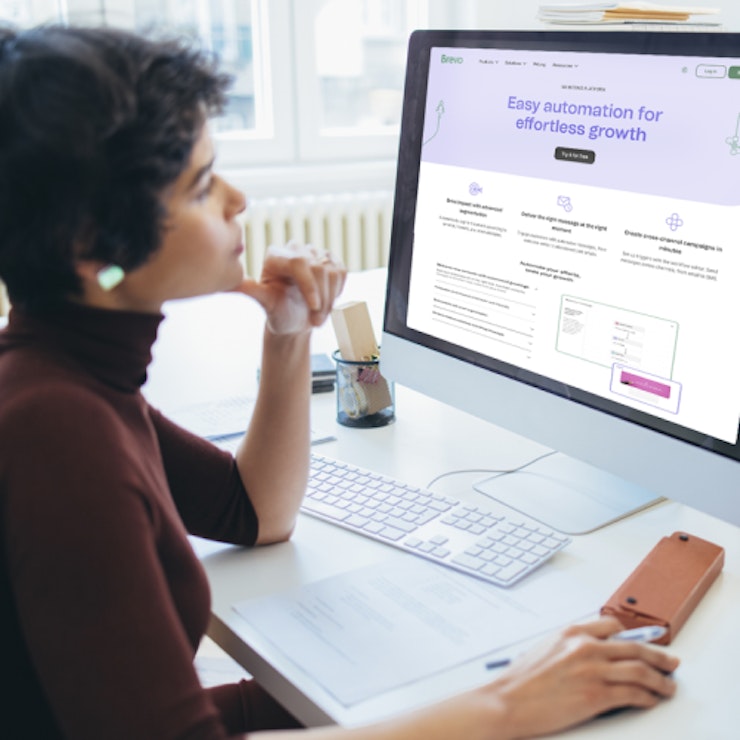
Every business wants to keep growing and evolving to meet their customers' needs, especially in today's uncertain world. One of the best ways to do this is to speak directly with your customer base and collect primary research. The results of these interviews, focus groups and surveys can be used to improve your products and services, and better market to your ideal audience.
What is primary customer research and why does it matter?
Primary or direct customer research is information you as a brand or business owner collect yourself through interactions with your target audience. This research is important because it offers direct insight into how your customers are using your products or services, and why they're choosing your business over a competitor.
"It's important to recognize that customers have options, and knowing how customers make choices is key to remaining competitive and success," said Maureen Michaels, president of Michaels Opinion Research, Inc.
More importantly, without understanding your customers' perspectives and pain points, you don't have the data you need to make the best decisions about your path forward.
"To live in a silo and not ask for customer input on products and services is like building a pacemaker without talking to doctors or patients — you're left to your own devices and forced to work without evidence," said Becca Hoeft, chief brand officer of Sunrise Banks. "Conducting … voice of customer (VOC) exercises is essential because there's so much more to read than just words."
[Read: How to Conduct Market Research to Better Understand Your Customers]
How to successfully conduct customer research
There are a few different types of direct customer research you can conduct, but most businesses can benefit from one-on-one interviews, small focus groups or panels and larger-scale surveys. Once you know the type of research you want to pursue, follow these steps for success:
Determine your goals for the research
There's no point in doing research if you don't have target goals or know why you're conducting research.
"You have to have a clear understanding of your goal," said David Meltzer, owner of East Insurance Group. "You need to know what your objectives are and what you want to achieve."
Choose your group size and demographics
When conducting customer research, you want to carefully choose the number of respondents and the type of people you're getting responses from.
"Recruiting the right demographic composition is key," said Michaels. "We have moved away from traditional eight to 12-person focus groups and now compose smaller groups based on shared characteristics, such as women in their 20s or men in their 50s. Depending on the topic, we are also careful to segment groups based on educational attainment."
To deliver a positive guest experience, owners need to be asking the right questions and providing guests the opportunity to voice their feedback.
Mark Lyso, EVP of operations, East Coast Wings + Grill
Leverage tools to conduct surveys at scale
Effective research may make time and resources, but if done correctly, you can create a survey that can gather a mass amount of information at scale. Eli Diament, founder and director of Azurite Consulting, uses these types of surveys when determining where his company can improve.
"A well-designed and precisely targeted survey can collect these insights, far better than any panel, 'gut feel' or word-of-mouth — and it only takes a few weeks to undertake from start to finish," Diament explained. "These tools can be laser-targeted and anonymous, so you can be sure you are capturing unbiased views from customers and competitors."
[Read: Managing Online Reviews: How to Handle Customer Feedback]
Provide an incentive for participation
Let your customers know their feedback is valuable by incentivizing them through discounts, prizes and raffles.
"Provide the 'whys' for the focus group and incentivize for attendance," said Mark Lyso, EVP of operations at East Coast Wings + Grill.
Ask for help
You don't have to go through the research process alone. Michaels recommended hiring a research partner who can learn or knows your industry sector.
"Analysis of the compiled data requires significant skill and experience, so it's really important to have someone who is well experienced and is qualified for your data," added Meltzer.
Be flexible and adaptable
Lyso encouraged businesses to spend the time and resources to ensure you're properly leveraging your customers' opinions.
"To deliver a positive guest experience, owners need to be asking the right questions and providing guests the opportunity to voice their feedback," Lyso said.
Hoeft agreed, noting that businesses shouldn't be afraid to go "off-script" if there's something a customer wants to see.
"Too many times our VOC exercises are rigid and don't allow for innovation and creativity in the needs we are trying to meet," she told CO—. "Be agile enough to not only listen but shift your conversation based on what the customer is saying and doing."
[Read: How to Boost Customer Retention and Drive Repeat Business]
CO—is committed to helping you start, run and grow your small business. Learn more about the benefits of small business membership in the U.S. Chamber of Commerce, here.










